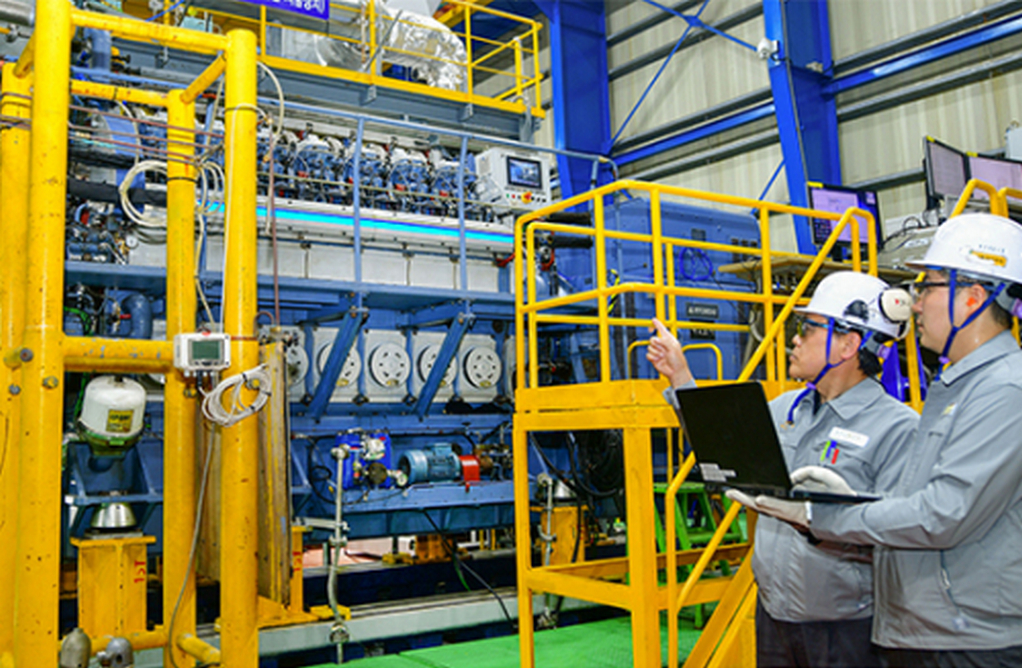Hyundai Heavy Industries successfully verified the performance of a recently developed 1.5MW-class LNG/hydrogen engine, which can selectively use diesel and a mixture of LNG and hydrogen to reduce emissions. Hyundai Heavy says the engine is a first step toward hydrogen-fueled engines.
In performance tests, the engine met IMO Tier 3 standards and has low carbon dioxide and methane slip.
Ship operation effect will be maximized if LNG and hydrogen engines are applied to liquified hydrogen carriers, the company said, as the engine can be fueled by Boil-off gas (BOG) generated during transportation.
The scope of application of LNG and hydrogen engines is not limited to ships. With a long lifespan and excellent load-following performance to control the power generation output according to fluctuations in the electric load, the engine is also expected to be used in small-scale stationary power generation and distributed power generation.
Hyundai Heavy Industries Group plans to continue R&D on LNG and hydrogen hybrid engines and complete the development of an engine that increases the proportion of hydrogen by 2023. Fully hydrogen-fueled engines will be developed in 2025.
Tags: BOG, Engine, HHI, Hydrogen, IMO Tier 3, LNG



Recent Posts
Hyundai Glovis to Retrofit Seven PCTCs with Avikus AI Navigation System
Super Terminais orders three more Konecranes Gottwald ESP.10 Mobile Harbor cranes
Covestro and HGK Shipping Extend Partnership to 2040 with Focus on Wind-Assisted Vessel Retrofit
Artemis Technologies Successfully Demonstrates 100 Percent Electric Crew Transfer Vessel at Aberdeen Offshore Wind Farm
IACS Council Advances Decarbonisation, Digitalisation and Governance Priorities at C91 Meeting in Beijing
Japan Launches Major R&D Project to Advance Shipbuilding with Alternative Fuels
EU Adopts Emissions Standards for Low Carbon Hydrogen to Bolster Clean Energy Market
Trafigura to Implement ZeroNorth’s AI Platform Across Global Fleet